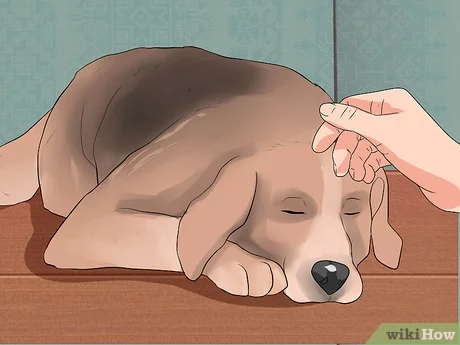Can Dogs Eat Raw Sausages
Can Dogs Eat Raw Sausages? Risks and Benefits of Feeding Your Dog This Meaty Treat
As a dog owner, you want to give your furry friend the best possible diet. However, sometimes it can be hard to resist those big puppy eyes begging for a bite of human food. One common question that many dog owners ask is whether or not dogs can eat raw sausages. After all, sausages are made from meat, and dogs are carnivores by nature. But is it safe to feed your dog raw sausages? In this article, we will explore the risks and benefits of giving your dog this meaty treat.
What Are Raw Sausages?
Before we dive into the topic of whether dogs can eat raw sausages, let’s first define what sausages are. According to the Oxford English Dictionary, a sausage is “a type of highly seasoned minced meat stuffed into a casing or molded into a shape”. Sausages can be made from different types of meats such as beef, pork, chicken, turkey, or even game meats like venison or elk. They can also contain various spices, herbs, vegetables, and additives like salt, sugar, preservatives, or flavor enhancers. Some sausages are cooked before consumption, while others are sold raw or partially cooked.
Are Raw Sausages Safe for Dogs?
The short answer is no; raw sausages are not safe for dogs to eat. Here’s why:
– Risk of bacterial contamination: Raw sausages may contain harmful bacteria such as Salmonella, E. coli, Listeria, Campylobacter, or Clostridium perfringens. These bacteria can cause food poisoning in humans and animals alike. Dogs may be more resistant to some types of bacteria than humans due to their stronger digestive system and shorter intestinal tract but can still get sick from consuming contaminated food. Symptoms of bacterial infection in dogs may include vomiting, diarrhea, fever, lethargy, and dehydration.
– Risk of choking or intestinal blockage: Raw sausages are usually wrapped in a casing made of animal intestine or synthetic material. These casings can be tough and difficult to digest for dogs, especially if they swallow them whole or in large pieces. The casings can get stuck in the dog’s throat, esophagus, stomach, or intestines, causing choking or blockage. This can be a life-threatening emergency that requires immediate veterinary attention.
– Risk of pancreatitis: Raw sausages are high in fat and salt content, which can be harmful to dogs’ health if consumed in excessive amounts. Dogs that eat too much fatty or salty food may develop pancreatitis, a condition where the pancreas becomes inflamed due to overproduction of digestive enzymes. Pancreatitis can cause abdominal pain, vomiting, diarrhea, loss of appetite, dehydration, and even organ failure if left untreated.
What Are the Alternatives to Raw Sausages?
If you want to give your dog a meaty treat that is safe and healthy for them to eat, here are some alternatives to raw sausages:
– Cooked lean meats: You can offer your dog cooked lean meats such as chicken breast, turkey breast, beef sirloin, or pork loin without seasonings or sauces. These meats are rich in protein and low in fat and sodium.
– Fresh fruits and vegetables: You can also give your dog fresh fruits and vegetables like apples, bananas, carrots, green beans, sweet potatoes, or blueberries as a source of vitamins and fiber. Make sure to wash them thoroughly and cut them into small pieces before feeding them to your dog.
– Commercial dog treats: There are many types of commercial dog treats available on the market that are specifically formulated for dogs’ nutritional needs. Look for treats that are made from high-quality ingredients, such as whole grains, real meat, or vegetables, and avoid treats that contain artificial colors, flavors, or preservatives.
Conclusion
In conclusion, dogs should not eat raw sausages due to the risks of bacterial contamination, choking or intestinal blockage, and pancreatitis. Instead, offer your dog cooked lean meats, fresh fruits and vegetables, or commercial dog treats that are safe and healthy for them to enjoy. Remember to always supervise your dog while they are eating and provide them with plenty of clean water. If you notice any signs of illness or discomfort in your dog after feeding them a new food item, contact your veterinarian immediately. Your furry friend deserves the best care possible!



